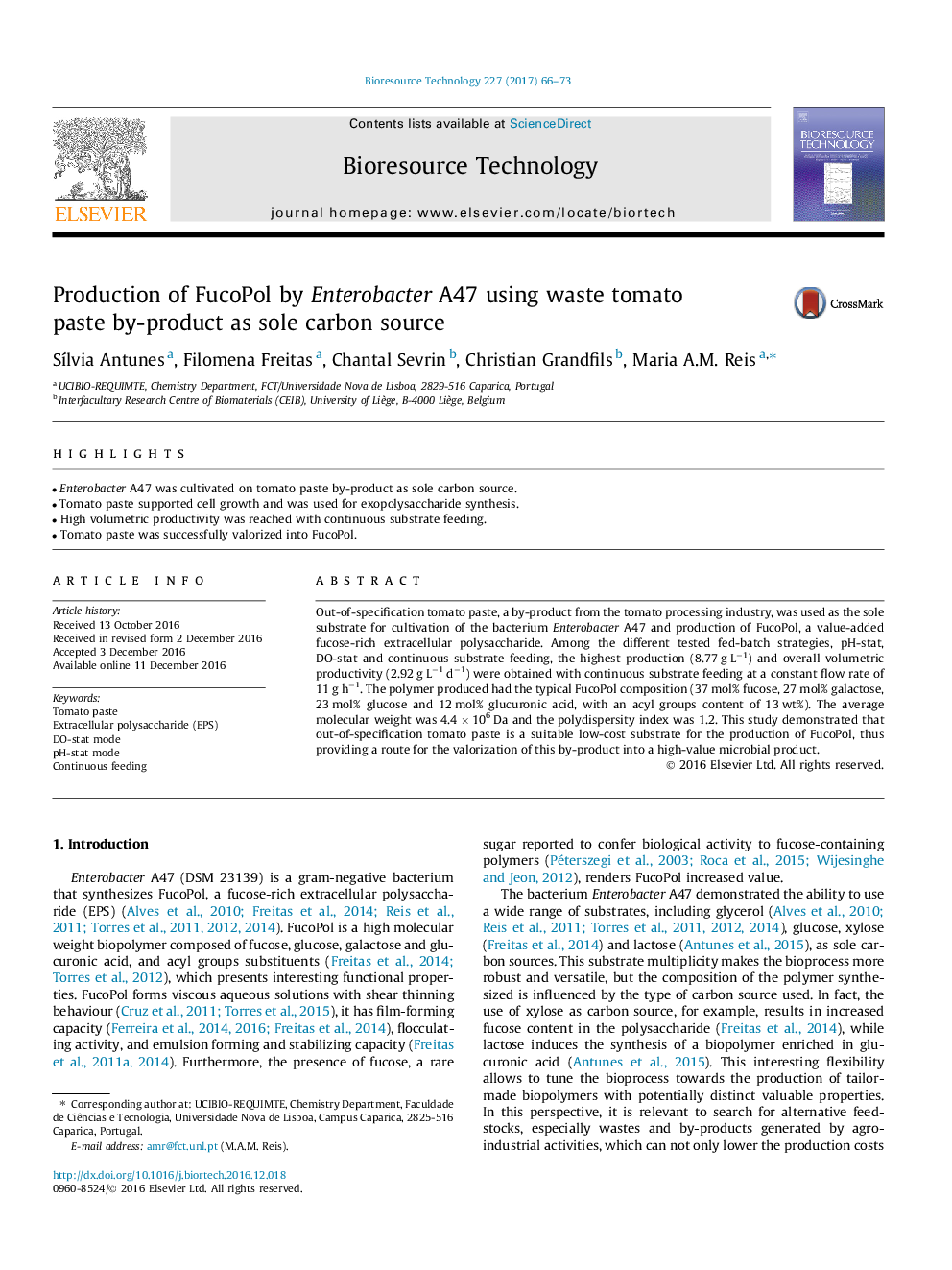| کد مقاله | کد نشریه | سال انتشار | مقاله انگلیسی | نسخه تمام متن |
|---|---|---|---|---|
| 4997697 | 1459916 | 2017 | 8 صفحه PDF | دانلود رایگان |

- Enterobacter A47 was cultivated on tomato paste by-product as sole carbon source.
- Tomato paste supported cell growth and was used for exopolysaccharide synthesis.
- High volumetric productivity was reached with continuous substrate feeding.
- Tomato paste was successfully valorized into FucoPol.
Out-of-specification tomato paste, a by-product from the tomato processing industry, was used as the sole substrate for cultivation of the bacterium Enterobacter A47 and production of FucoPol, a value-added fucose-rich extracellular polysaccharide. Among the different tested fed-batch strategies, pH-stat, DO-stat and continuous substrate feeding, the highest production (8.77 g Lâ1) and overall volumetric productivity (2.92 g Lâ1 dâ1) were obtained with continuous substrate feeding at a constant flow rate of 11 g hâ1. The polymer produced had the typical FucoPol composition (37 mol% fucose, 27 mol% galactose, 23 mol% glucose and 12 mol% glucuronic acid, with an acyl groups content of 13 wt%). The average molecular weight was 4.4 Ã 106 Da and the polydispersity index was 1.2. This study demonstrated that out-of-specification tomato paste is a suitable low-cost substrate for the production of FucoPol, thus providing a route for the valorization of this by-product into a high-value microbial product.
Journal: Bioresource Technology - Volume 227, March 2017, Pages 66-73